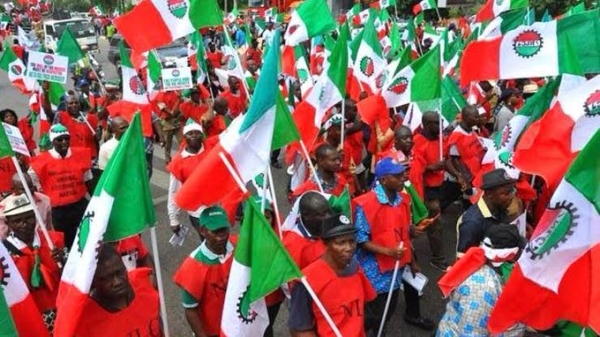...To get all news updates, Join our WhatsApp Group (Click Here)
Also Join our WhatsApp Channel (Click Here)
By Victor Ojelabi
Strike actions have always been a tool deployed by organised labour in Nigeria to either get the attention of the governments or force the latter to do its bidding since time immemorial.
So it did not come as a shock when the Nigeria Labour Congress, under the leadership of Comrade Joe Ajaero and the Trade Union Congress (TUC), mobilised their members for the nationwide industrial action that will commence tomorrow.
And the bone of contention? The two apex labour groups, which expressed disappointment with the government’s handling of the negotiation on the new minimum wage, had declared an indefinite nationwide industrial action effective from Monday, 3 June 2024.
The organised labour is demanding better welfare for its members, specifically asking for the sum of N494,000 as minimum wage due to the economic challenges being faced by many Nigerians.
While it is my belief that the demand is justified, I will appeal to organised labour to tread with caution as the timing is not only wrong but will spell doom for the future of many youths in the country.
As we speak, the West African Senior School Certificate Examination (WASSCE) is ongoing and such strike action at this moment will not only cripple movements, it will jeopardise the emotional stability of the students, whose future is on the line.
Many parents, guardians and those who have children in schools are already anxious and smitten by fear over what this action portends not only for their children but for their already stressed pockets.
The leadership of the apex labour groups needs to keep in mind that WASSCE is not a Nigerian examination and, therefore, cannot be suspended or paused for Nigeria to straighten out its internal problems.
Already, the West African Examinations Council (WAEC) has said the indefinite strike announced by labour unions would not affect the conduct of the ongoing West African Senior School Certificate Examination (WASSCE).
In an internal memo addressed to the principals of schools participating in the 2024 WASSCE, WAEC said the conduct of the internal examination continues irrespective of the strike.
“The attention of Management has been drawn to a notice of the commencement of an indefinite strike by NLC and TUC effective Monday, 3 June 2024. Please be formally informed that the conduct of WASSCE SC 2024 goes on as scheduled,” the examination board said in a statement signed by the Ekiti Branch Controller for WAEC National Office, identified as T. A. Lawson.
Tell me, how do we expect the students and invigilators to move and access their examination centres when the economy is shut down? How do we even expect them to be in the right state of mind if they manage to access their examination centres?
If a group like the Indigenous People of Biafra (IPOB) was magnanimous enough in allowing the students writing their WASSCE to do so on a day set aside by the secessionist group to honour those who died during the Civil War between 6 July 1967 and 15 January 1970, then I wonder why the union leaders cannot do the same.
You can get every of our news as soon as they drop on WhatsApp ...To get all news updates, Join our WhatsApp Group (Click Here)
Also Join our WhatsApp Channel (Click Here)

















